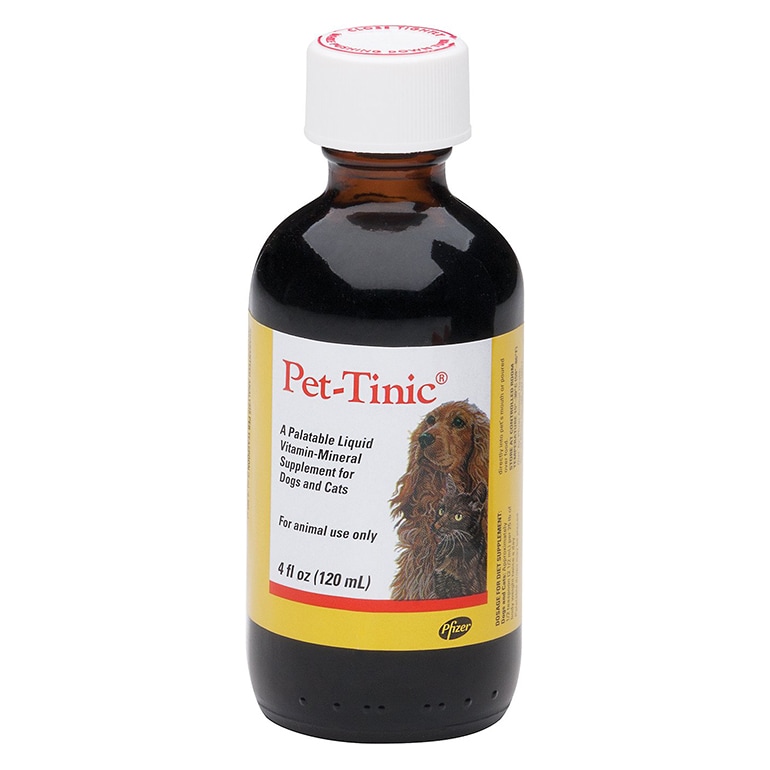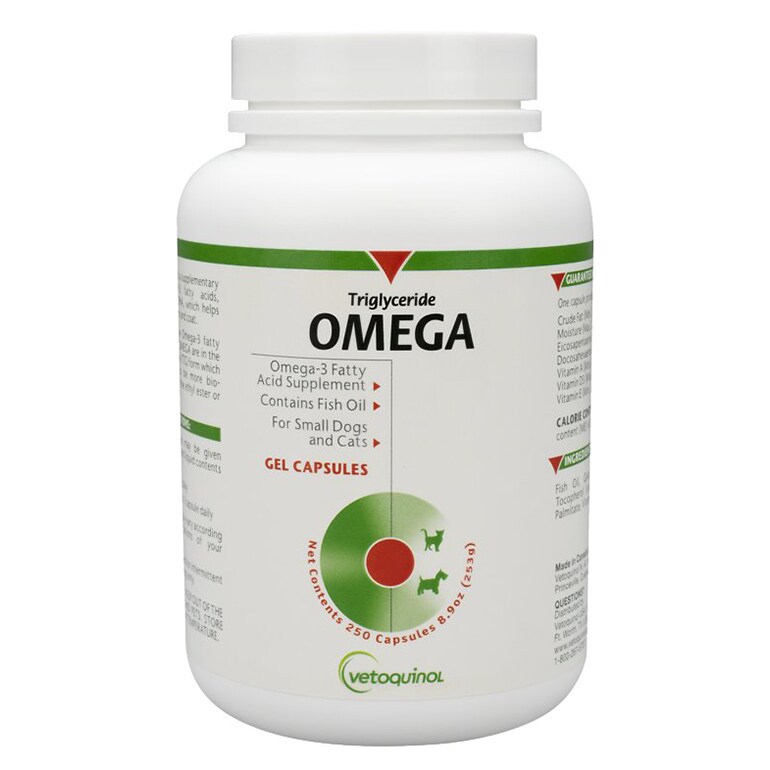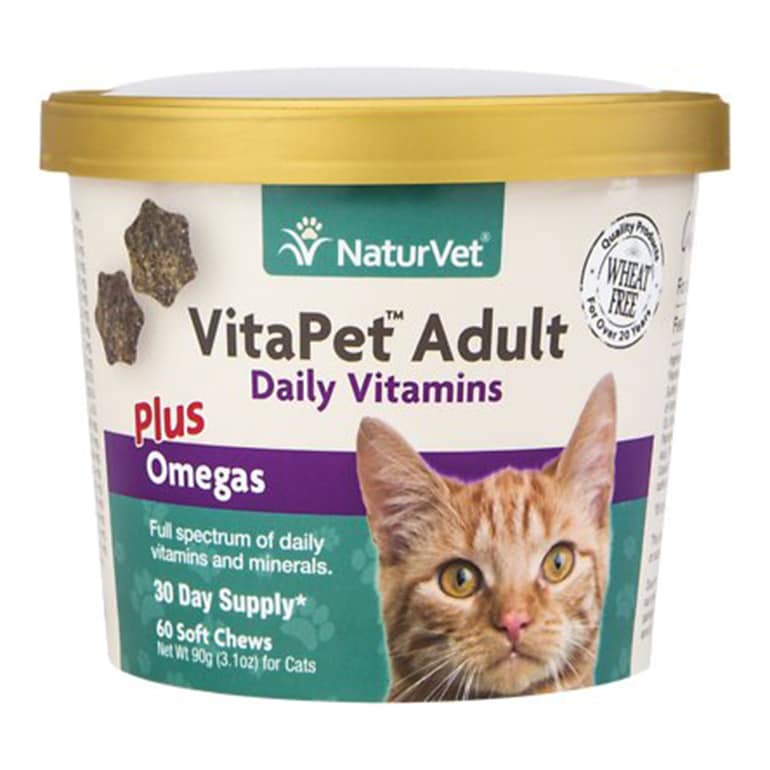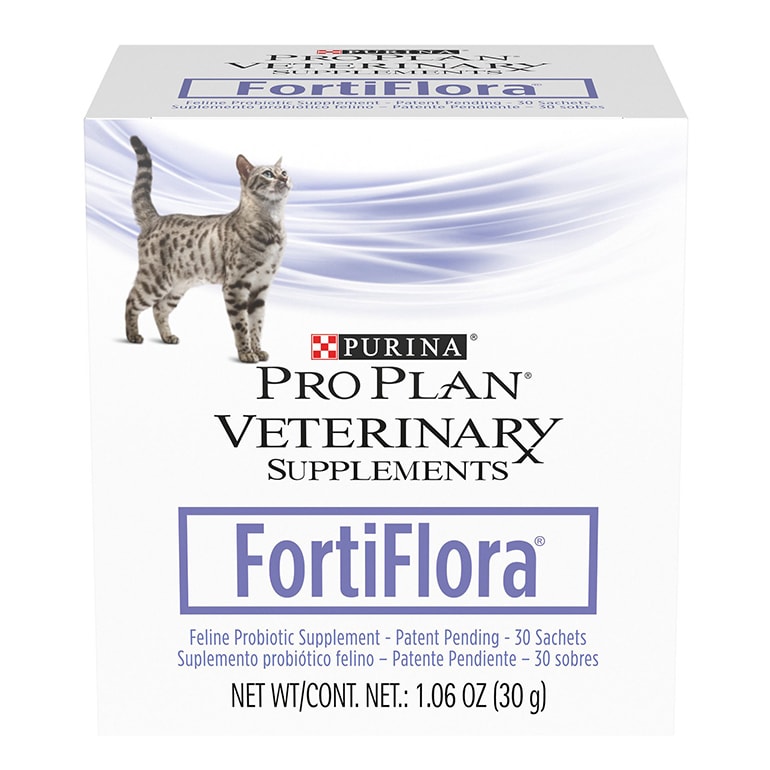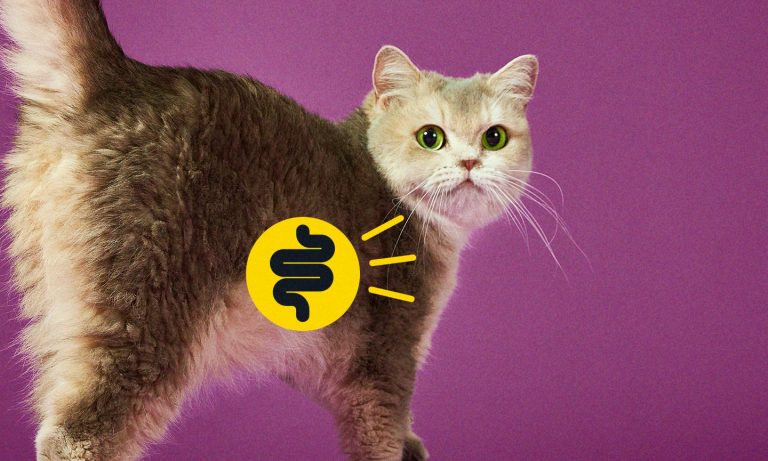Try as we might, few of us get all the vital nutrients in the right amounts we need from our day-to-day diet. Taking a daily multivitamin is a simple way to make sure you are getting the full alphabet of nutrients experts recommend for optimal health, and many of us add this to our regular wellness routine. But did you know that there are also multivitamins specifically developed for animals, including cats? Could your feline benefit from a daily dose of cat vitamins? Well, let’s investigate…
Eager to learn more about what cat vitamins and multivitamins are, their importance and whether certain cats should take them more than others, we reached out to a veterinarian for guidance. Here’s what every cat parent needs to know.
What actually goes into a cat multivitamin?
Just like the human iterations, cat multivitamins vary from brand to brand and bottle to bottle. However, there are a few key ingredients you’ll almost always find.
“Most contain varying blends of taurine, which is an amino acid that’s essential for heart function in cats. Taurine must be obtained from a cat’s diet, as they cannot produce it themselves,” says Jamie Richardson, DVM, medical chief of staff for Small Door Veterinary in New York. “Cat multivitamins also often contain B vitamins, probiotics, electrolytes, omega fatty acids and iron.”
Richardson explains that an omega fatty acid supplementation can help decrease inflammation associated with arthritis, atopic dermatitis (also known as eczema), chronic kidney disease and can even help improve heart and brain function as your cat ages.
As for those probiotics (a type of healthy bacteria), Richardson say that they may improve or maintain gastrointestinal health, meaning they can help keep your kitty’s gut and digestive system in tip-top shape. “The benefits of probiotics on gastrointestinal health and the gut biome are well established, and we are establishing possible links between gut health and overall systemic body health,” she notes.
“B vitamins play an important role in the production of red blood cells, as well as digestive, nervous system and skin health,” Richardson adds, while, “electrolytes regulate nerve and muscle function and help balance hydration and the blood’s pH. Iron is also vital for the development of red blood cells, deficiencies of which can lead to anemia.”
Well, it sure sounds like cat multivitamins are packed with benefits!
So… should I give my cat a multivitamin?
The answer to this question ultimately depends on what sort of food your cat eats. For example, if you feed your cat a well-balanced diet that meets the basic nutritional requirements for a cat as established by the Association of American Feed Control Officials (AFFCO), then a cat multivitamin might not be absolutely necessary, but could instead serve as bonus nutrition. (Always consult your vet before introducing any new supplements to your cat’s diet—more on that later!)
However, Richardson says that if your cat food, whether a commercial diet or home-cooked, doesn’t meet your kitty’s nutritional requirements—be sure to discuss with your veterinarian what your individual cat requires to stay healthy—then a multivitamin becomes integral to their health and wellbeing.
To make a long story short: A cat multivitamin serves as a quick and easy solution in cases where your cat isn’t getting the proper amount of vital nutrients—specifically taurine, omega fatty acids and probiotics. They can also serve as a bonus opportunity to supplement the nutrients your cat is already receiving in their daily meals.
Should I speak to a veterinarian before giving my cat a multivitamin?
Absolutely! As with any change to your cat’s diet or lifestyle, consulting with a veterinarian before giving your cat a multivitamin is very important. Nutrition is a particularly nuanced issue and speaking with a veterinarian can help guide you in whether a certain health supplement is right for your pet.
Your vet can help you identify what, if anything, is currently missing in your cat’s diet and which vitamins might be best for their individual needs. This conversation will also ensure you don’t give your cat a supplement that might negatively impact them.
“Certain disease conditions require supplementation of vitamins and/or electrolytes,” Richardson explains. “For example, cats with kidney disease may benefit from supplemental potassium.”
“Equally, there might be underlying health concerns where a multivitamin may do more harm,” she warns, “such as in the case for heart or kidney disease, where electrolytes need to be carefully monitored and balanced.”
The bottom line? It is always important to have a conversation with your vet before giving your cat multivitamins or any other supplements.
What are the best cat multivitamins?
After confirming with your vet what specific vitamins and minerals you should be looking for, Richardson recommends prioritizing any option that smells and tastes yummy since cats are notoriously picky when it comes to this stuff! (If you’re struggling on delivery, try giving your cat pills in a covert and delicious manor, such as Greenies Pill Pockets Feline Salmon Flavor Cat Treats.)
For multivitamins, some of Ricardson’s favorite brands include Vetoquinol, Pet-Tinic and Nutramax.
For picky cats, consider Vetoquinol Felovite II Oral Gel Vitamin & Mineral Cat Supplement. This tuna-flavored gel contains taurine and is designed to be lapped up—you can dab it right on your kitty’s nose or paws!
Pet-Tinic Liquid Vitamin-Mineral Dog & Cat Supplement is also crafted with a yummy meat flavor and boasts vitamins B-6, B-12 and iron.
If your kitty prefers chewable tablets, Nutramax Cobalequin Chewable Tablet Small Dog & Cat Supplement also contains vitamin B-12—plus a delectable chicken flavor!
If you don’t see omega fatty acids included on the label of your cat’s multivitamin, Richardson encourages discussing adding this supplement to their diet, as well. “I frequently recommend giving cats an omega fatty acid supplement, such as Vetoquinol Care Triglyceride OMEGA Omega-3 Fatty Acid Small Breeds Dog & Cat Supplement,” she says. Got a picky eater on your hands? Also consider the NaturVet Adult Vitamins Plus Omegas. These soft chews are crafted with chicken flavoring to be extra appetizing to cats.
Finally, Richardson also recommends a probiotics supplement if your vet determines your kitty to be lacking in the gut health department. She recommends Purina Pro Plan Veterinary Diets FortiFlora Probiotic Gastrointestinal Support Cat Supplement.
“There is a great deal of science that proves the benefits of these in a variety of applications,” says Ricardson. We think your own doctor would say the same about your multivitamins, too!
As always, remember to speak with a veterinarian who has a full understanding of your pet’s past and current health before giving any cat vitamins, multivitamins or other supplements. Together, you can ensure you’re giving your cat everything they need (and nothing they don’t) for a happy, healthy and long life!
Read more:
Share:


